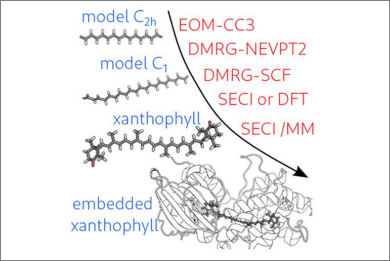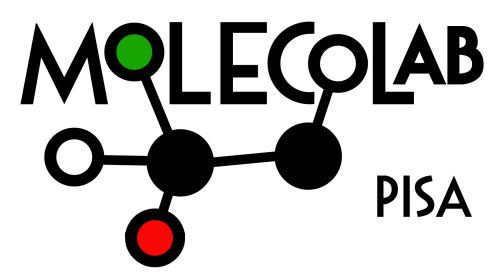
Xanthophylls are a class of oxygen-containing carotenoids, which play a fundamental role in light-harvesting pigment–protein complexes and in many photoresponsive proteins. The complexity of the manifold of the electronic states and the large sensitivity to the environment still prevent a clear and coherent interpretation of their photophysics and photochemistry. In this Letter, we compare cutting-edge ab initio methods (CC3 and DMRG/NEVPT2) with time-dependent DFT and semiempirical CI (SECI) on model keto-carotenoids and show that SECI represents the right compromise between accuracy and computational cost to be applied to real xanthophylls in their biological environment. As an example, we investigate canthaxanthin in the orange carotenoid protein and show that the conical intersections between excited states and excited–ground states are mostly determined by the effective bond length alternation coordinate, which is significantly tuned by the protein through geometrical constraints and electrostatic effects.
Bondanza, M.; Jacquemin, D. & Mennucci, B.
J. Phys. Chem. Lett. 12,6604-6612 (2021) https://doi.org/10.1021/acs.jpclett.1c01929

